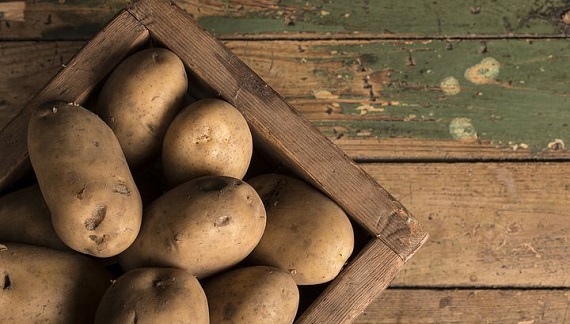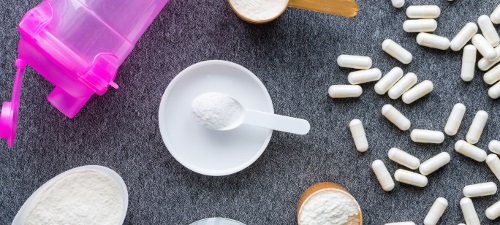There is a lot of varied information currently available on exactly what you should eat when you exercise. Eating a balanced diet everyday will provide you with all the nutrients that you need for shorter exercise sessions, but when exercising for more than one hour in any sport, it may help to pay special attention to what you eat before, during, and after exercise; this will help improve recovery, reduce tiredness, and give you the energy to train harder & longer. Everyone is different, so see what works best for you.
Eating for exercise
Making informed dietary choices will help athletes develop power, strength, speed and endurance, ultimately reaching their optimal performance.

Before
You should eat a high carbohydrate low fat meal to effectively top up your glycogen (carbohydrate stored in your muscles to fuel exercise); good examples include porridge for breakfast, jacket potato with salad for lunch, or chicken stir fry with rice for dinner, depending on when your training session is. Eating 1-4hrs before training should allow time for your stomach to empty before training, helping to prevent stomach cramps which could inhibit performance. Having a pre-workout snack, such as a banana or cereal bar 1-2hrs before exercise may also provide an energy boost.
Drinking 500ml of fluids 2-3hrs before exercise will ensure you are fully hydrated, as dehydration will negatively impact on your performance and result in headaches and dizziness. It is also good practice to take note of your weight before and after exercise, as this will help you calculate how much you should drink to replace the fluids lost in sweat.
During
If your training session lasts less than one hour, then you won`t need to refuel, but you will still need to drink water. If your training lasts longer than one hour, then eating 30-60g carbohydrate per hour can help with maintaining your energy levels and allow you to train longer; this is because after an hour of exercise, your muscle glycogen stores start to run out and need replenishing. Good examples include dried fruit and cereal bars containing dried fruit and nuts. It is important to drink small amounts of fluid regularly when exercising to replenish the fluid lost through sweat to help prevent the onset of dehydration. Remember you may need to drink more when training in warmer climates or at altitude. For exercise lasting longer than one hour, it may be helpful to drink diluted fruit juice or an isotonic sports drink to obtain extra carbohydrate in liquid form instead of relying on foods.
After
Post workout nutrition is essential for aiding muscle recovery and replenishing your glycogen stores. If exercising over 1 hour, research shows eating a carbohydrate snack containing protein (15-25g of protein) within the first 15-20 minutes of completing the session aids recovery. Examples include a cheese sandwich, milk shake or cereal bar containing nuts and dried fruit. Furthermore you should also ensure your post training meal is based on starchy carbohydrates; eating within 2-3hrs after exercise supports muscle growth, muscle and bone repair and recovery of glycogen stores; examples include chilli con carne with rice or a baked potato and beans. If you are training again within eight hours, it is important to begin refuelling quickly with a high carbohydrate high protein snack as mentioned above.
You need to consume 150% of the amount of fluid lost during exercise to fully rehydrate. For example, if you weigh 75kg before exercise and 74kg after exercise, then you need to drink 1.5l of fluid. It is best to drink little and often, and aim to consume all of your fluids within 6hrs following exercise. Depending on your exercise and duration, it may be beneficial to drink an isotonic sports drink to replace the electrolytes lost in sweat. If you find that you are gaining weight during exercise then you need to reduce the amount of fluid you take on.

Sports Supplements
It is a common misconception that using expensive sports supplements will provide sufficient nutrients (especially protein) to get the most out of intense physical training. However as these are designed to supplement rather than replace you may not experience any difference unless you already eat a healthy, balanced diet. You can do this by following the principles of the Eatwell Guide.
Make sure you read up on the various sports supplements available before choosing to buy any, if any at all.
